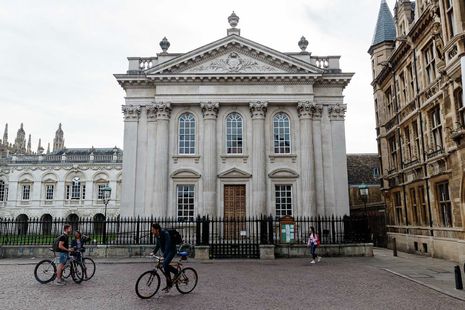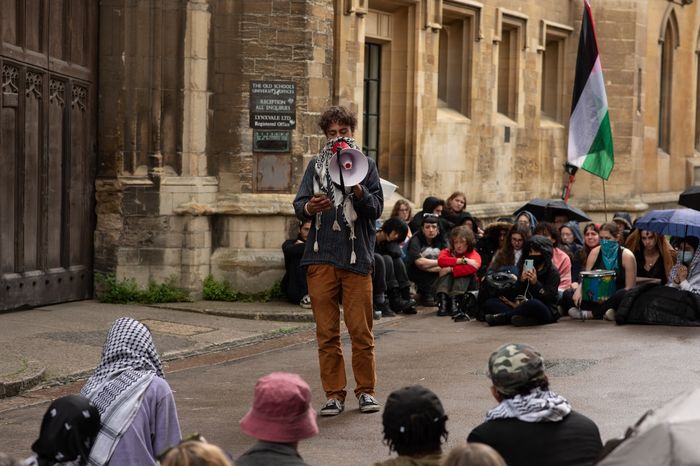Academics renew calls to abolish ‘ageist’ forced retirement
The University has proposed to push its compulsory retirement age back from 67 to 69, but academics are pushing for its removal

Proposals to water down Cambridge University’s forced retirement age have been met with fresh attacks from academics who believe the “ageist” policy should be abolished altogether, criticising the policy for causing a “brain drain” and disproportionately harming women.
The University currently operates an Employer Justified Retirement Age (EJRA) of 67, meaning that staff who reach this age are forced to retire. Some academics have raised concerns over the legality of the policy.
The University has proposed to push the EJRA back to 69, and to abolish the policy for administrative and support staff, though it will remain in place for all academics, pro-vice-chancellors and the vice-chancellor.
Cambridge has affirmed that the policy, described as “forced retirement” by some academics, “ensure[s] intergenerational fairness and career progression,” and “promote[s] innovation in research and knowledge creation”.
Alongside the proposed changes, the University has published a set of remarks signed by dozens of academics attacking the policy and its planned preservation. These academics claim that the EJRA “does none of [the] things” claimed by the University, and instead “stops innovation” and “disproportionately harms women whose careers often develop later”.
Varsity understands that Cambridge was forced to publish these remarks after members of University Council dissented from the proposals.
The academics said that the policy “singles out people based on one ‘protected characteristic’ and discriminates against them”. “The EJRA is a destructive policy based on outdated assumptions. It hurts Cambridge’s global reputation and undermines its mission,” the group of 35 academics alleged.
Jon Crowcroft, a professor of communications systems, aged 66, told Varsity that the EJRA is “obviously unethical” because it constitutes “age discrimination”.
“Age is as much a protected characteristic as gender or religion, and if we were firing people because they suddenly decided to change religion, there would be an outcry (and a court case),” he said.
Prof Crowcroft drew attention to an employment tribunal held last year over the EJRA at Oxford, the only other UK university with such a retirement policy. The tribunal ruled that Oxford was not “legally justified” in forcing four academics to retire aged 68. This “suggests” that the EJRA “isn’t legal,” Crowcroft said.
The academic told Varsity that some defend the EJRA as a means of ridding the university of “people who are not pulling their weight”. But, Crowcroft has alleged that the use of “age as a proxy” for removing “dead wood” from departments is “absolutely not legal”.
Professor Raghu Rau, another signatory of the comments, said of the EJRA: “Instead of developing a performance management system, it just forces out everyone. Simply put, to get rid of some deadwood, the university burns down the forest.”
A source close to the process told the Varsity: “The EJRA is a really complex issue, and opinion is undoubtedly split over it. The proposed change [to 69] strikes a reasonable compromise between the legitimate benefits of the EJRA, and the inevitable downsides of using a retirement age.”
“The University has been listening to academics - but now it’ll be up to them to decide whether this balance is the right one,” they said.
Nino Läubli, a postdoctoral researcher who contributed to the University’s review of the EJRA, told Varsity that discussions of the policy fail to “highlight its relevance for the postdoctoral and earlier career communities”.
“The EJRA plays an essential role in the creation of new positions within the University, with the retirement age being an important trade-off to the unique independence and academic freedom offered by Cambridge’s established posts,” he said.
Last November, 120 academics penned an open letter to Cambridge’s vice-chancellor in an attempt to abolish the EJRA. They wrote that the policy “contravenes” the 2010 Equality Act, “causes stress and poor mental health” to top academics, and “reduces diversity” among Cambridge’s employment pool.
Professor Didier Queloz, a Nobel Prize winner and one of the leaders behind the letter, said of the new proposals for the EJRA: “I think the revised age is a sign that the University admitted that the current situation should be revised. It is a good step forward.”
However, Prof Queloz questioned the proposal to abolish the EJRA for administrative staff but keep it in place for academics. He told Varsity: “I don’t support an asymmetric treatment between staff and academics. It divides the community on HR ethical principles.”
The proposals to push the EJRA back to 69 will be debated in a formal discussion later this month. The plans will then be voted on by academics in July.
Prof Richard Penty, chair of the EJRA review group, said: “The University’s review shows that its retirement age creates job opportunities for academics at the earlier stages of their careers. Over the past 10 years, almost half of all new academic vacancies in the University were a result of the policy.”
“There would be significantly fewer permanent jobs available each year to academics in the earlier stages of their careers without it. Feedback shows that many University departments value the steady stream of vacancies created by retirement because it helps them open up crucial new areas of research, and encourages research innovation,” Penty said.
 News / Colleges charge different rents for the same Castle Street accommodation2 March 2026
News / Colleges charge different rents for the same Castle Street accommodation2 March 2026 News / News in Brief: waterworks, wine woes, and workplace wins 1 March 2026
News / News in Brief: waterworks, wine woes, and workplace wins 1 March 2026 News / Climate activists protest for ‘ethical careers policy’1 March 2026
News / Climate activists protest for ‘ethical careers policy’1 March 2026 News / Angela Merkel among Cambridge honorary degree nominees27 February 2026
News / Angela Merkel among Cambridge honorary degree nominees27 February 2026 News / Private school teacher who lied about Cambridge degree barred from teaching27 February 2026
News / Private school teacher who lied about Cambridge degree barred from teaching27 February 2026









